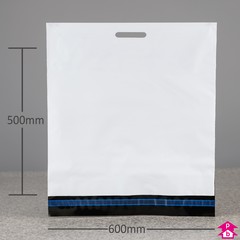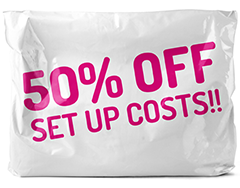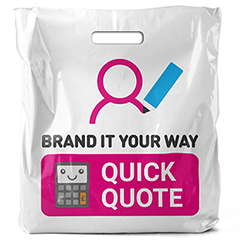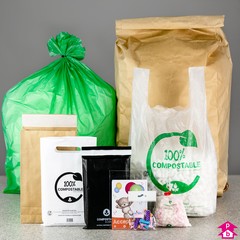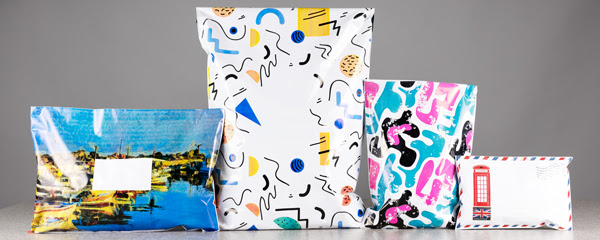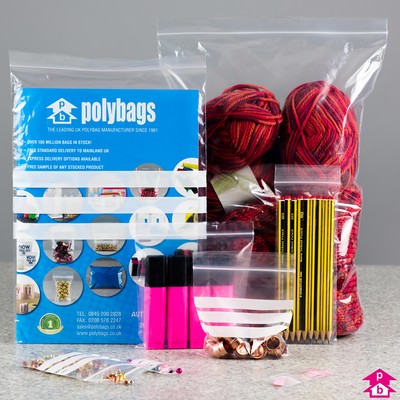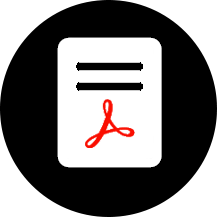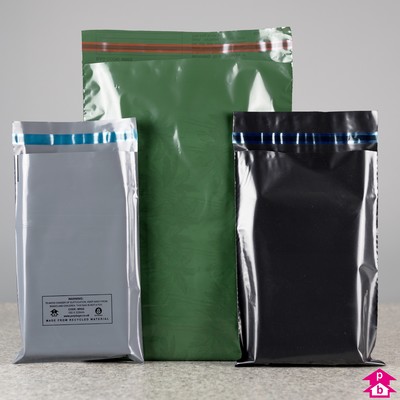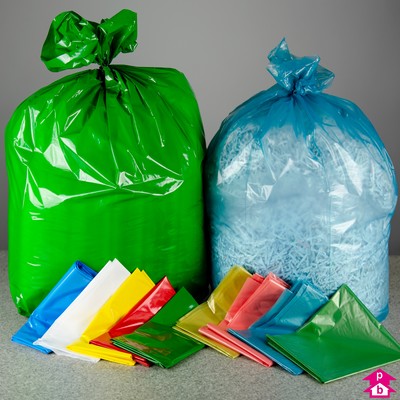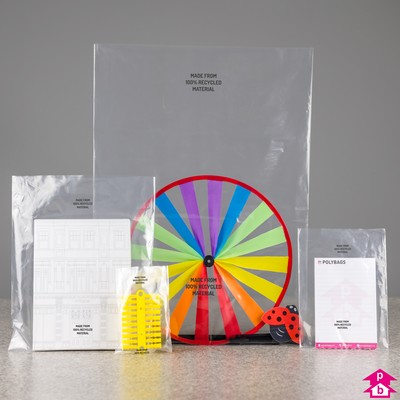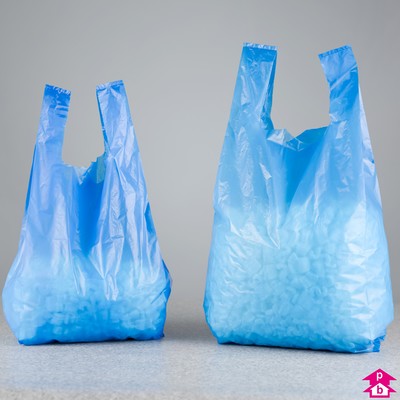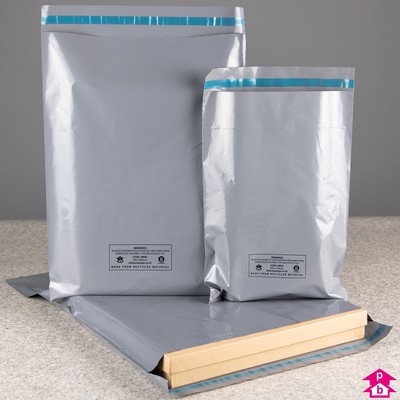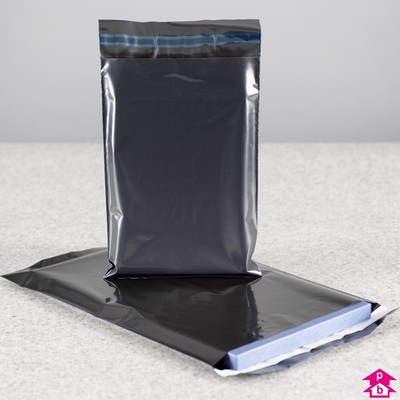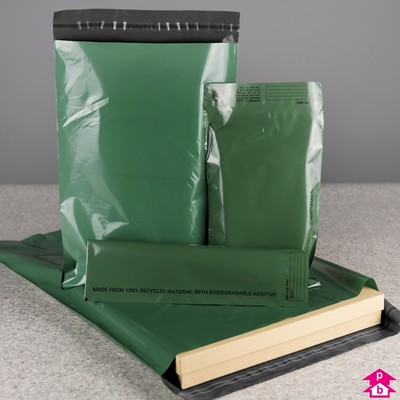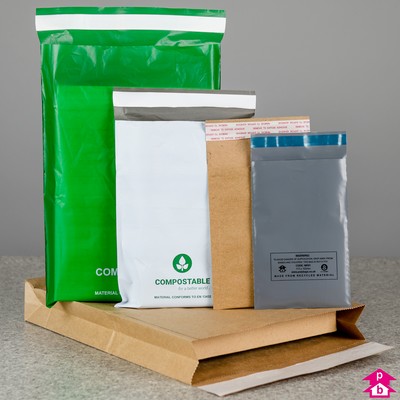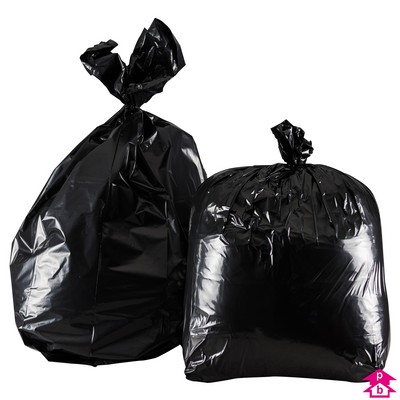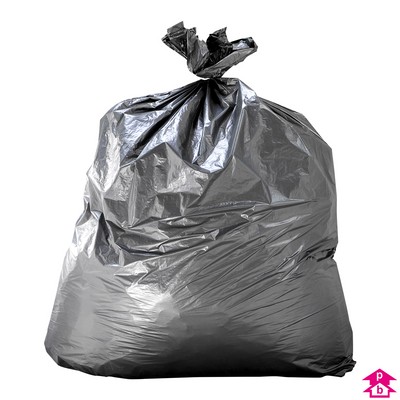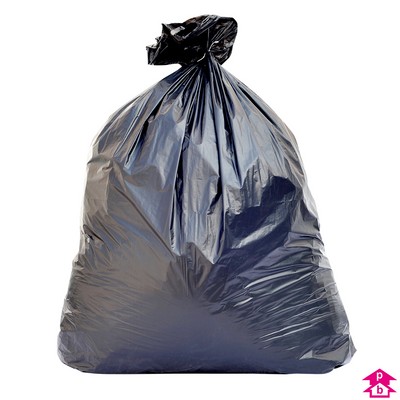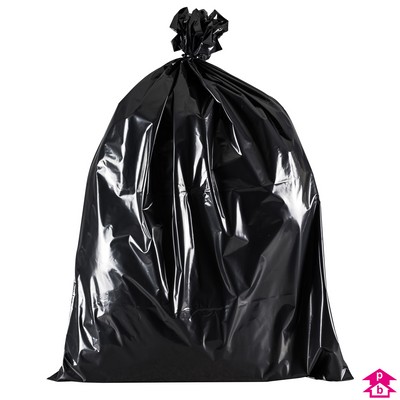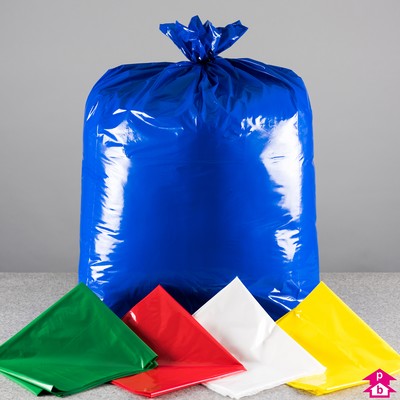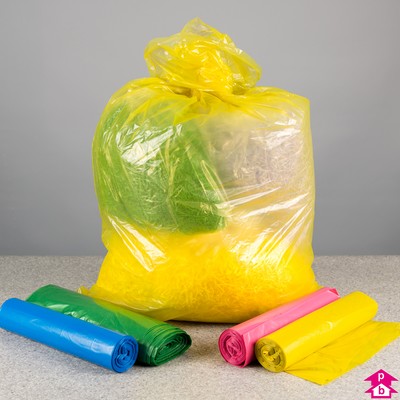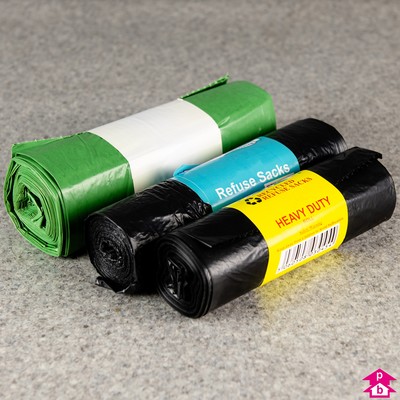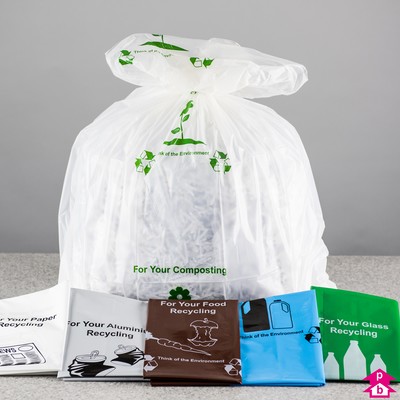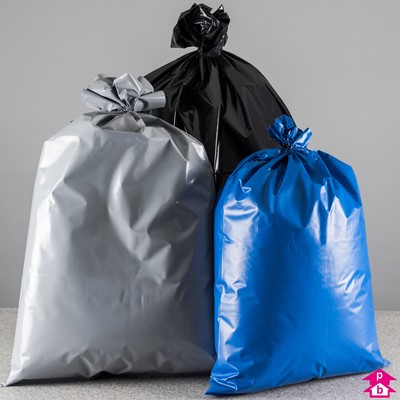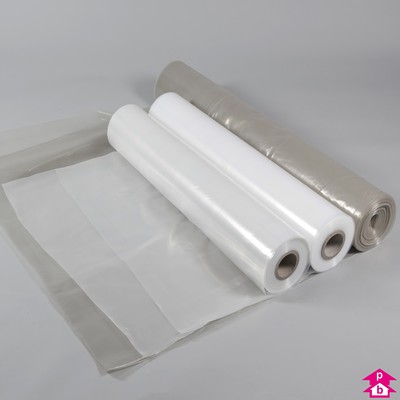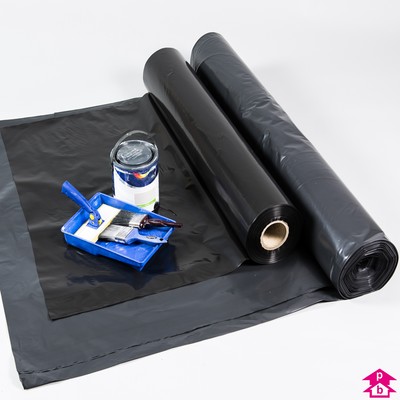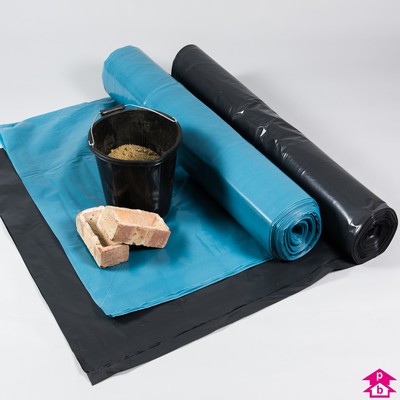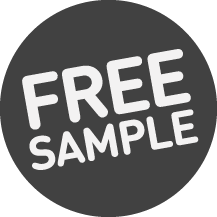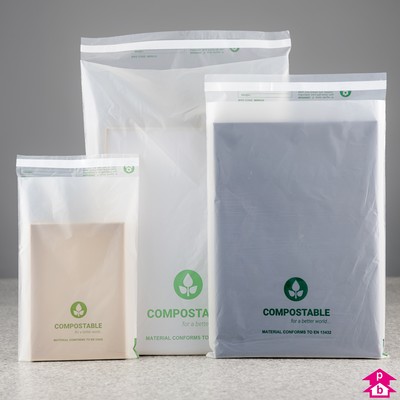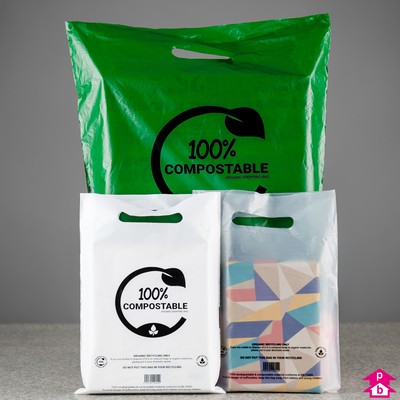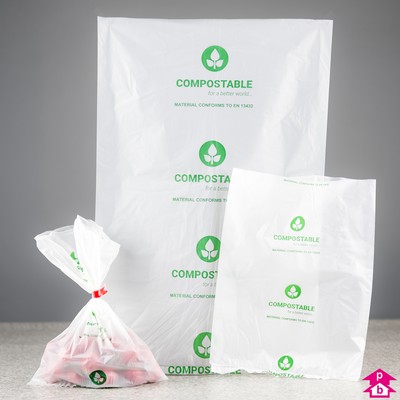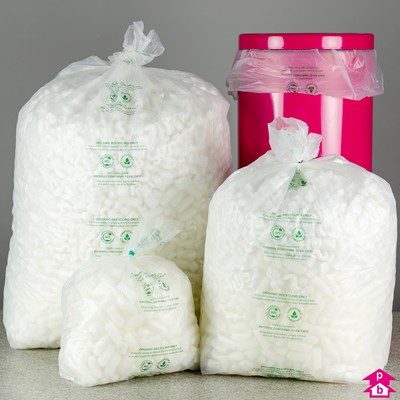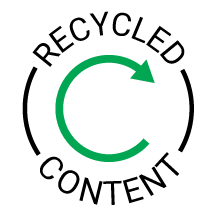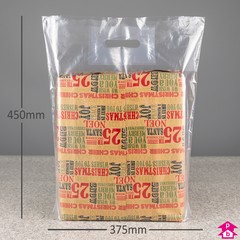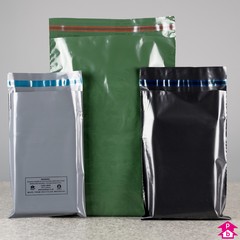600mm x 500mm (+75mm Handle +40mm Lip), 70 micron
From £32.87 per 100
- 100% recycled
- Biodegradable
- Carbon neutral
- Compostable
- Recyclable
- Renewable

The Plastic Packaging Tax
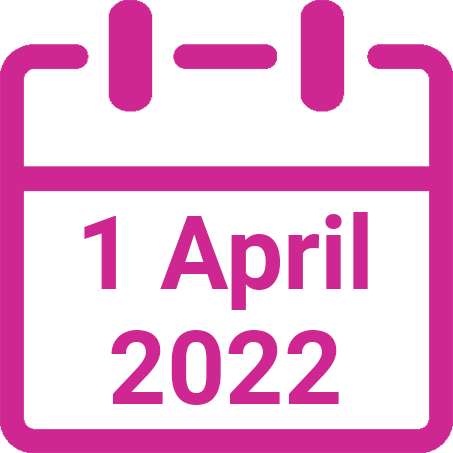
The date on which the Plastic Packaging Tax (PPT) was introduced
What is the UK's new Plastic Packaging Tax?
On 1 April 2022, a new Plastic Packaging Tax (PPT) came into effect in the UK on all plastic packaging that does not contain at least 30% recycled plastic.
The new levy applies to all plastic packaging manufactured in or imported into the UK. It is designed to encourage the use of recycled plastic which will, in turn, stimulate recycling and waste collection levels, to divert plastic waste away from landfill or incineration.
How does the Plastic Packaging Tax affect my business?
Polybags is fully prepared for the implementation of the new tax, so our key message to customers is don't worry - we have it covered.
We will manage all PPT implications for our products and the associated paperwork, so that you can continue to shop with us as normal.
If you want to find out more, we've put together the below Q&A to answer any queries you may have about the PPT and its impact on your business.

Q&A - The Plastic Packaging Tax
- When did the Plastic Packaging Tax come into effect?
- To what products does the Plastic Packaging Tax apply?
- Do I need to pay the Plastic Packaging Tax to HMRC?
- How much is the Plastic Packaging Tax?
- Will the Plastic Packaging Tax lead to higher prices?
- What Plastic Packaging Tax records do I need to keep?
- How will I know if the products I wish to buy are subject to the Plastic Packaging Tax?
- Why don't all products contain at least 30% recycled plastic?
- How does using recycled plastic affect the appearance and quality of products?
- Where can I buy recycled bags?
- What recycled packaging options are currently available?
- Is the product I want available with 30% recycled content?
- Are compostable plastic products exempt from the Plastic Packaging Tax?
- Are biodegradable plastic products exempt from the Plastic Packaging Tax?
- Are products made from multiple materials exempt from the Plastic Packaging Tax?
- The Plastic Packaging Tax - your questions answered
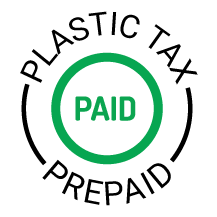
Each Polybags product is now marked as either 'PPT Paid' or 'PPT Exempt'
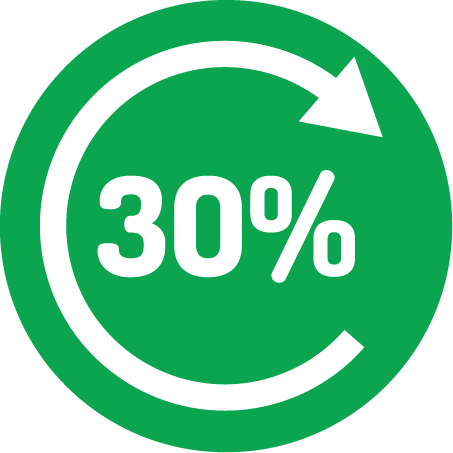
The minimum amount of recycled plastic a product must contain to be exempt from the PPT
When did the Plastic Packaging Tax come into effect?
The Plastic Packaging Tax was introduced in the UK on 1 April 2022.
To what products does the Plastic Packaging Tax apply?
The new tax applies to all plastic packaging - i.e. predominantly plastic by weight - that does not contain at least 30% recycled plastic. This includes bioplastics - i.e. plastics that are compostable, biodegradable or oxo-degradable.
Do I need to pay the Plastic Packaging Tax to HMRC?
No. As the packaging manufacturer or importer, Polybags will account for the PPT and collect it on behalf of HMRC.


Tax paid per metric tonne of plastic packaging

Polybags accounts for the tax and pays it to HMRC
How much is the Plastic Packaging Tax?
Manufacturers and importers of plastic packaging have to pay £223.69 per metric tonne of plastic packaging they produce or import.
Companies who produce or import less than 10 tonnes of plastic packaging per year are exempt from the tax.
Will the Plastic Packaging Tax lead to higher prices?
Inevitably, some plastic products will see an increase in costs - particularly food-safe products which can not contain any recycled material (see below).
However, Polybags will continue to provide a wide range of packaging options for our customers to choose from. We have already introduced over 100 new products containing at least 30% recycled content, to give customers a PPT-exempt option on more than a dozen product ranges.

What Plastic Packaging Tax records do I need to keep?
Polybags will account for and collect all PPT on behalf of HMRC so, as a customer, you don't have to worry about it.
We will list any products to which PPT has been applied on both sales invoices and quotes for bespoke products, but latest HMRC guidance no longer requires a full PPT breakdown to be shown.
Polybags is in continued discussion with HMRC. If their guidance on this issue changes, we will update our procedures and this advice accordingly.
How do I know if the products I wish to buy are subject to the Plastic Packaging Tax?
This information is clearly displayed to Polybags customers. Since 1 April 2022, all products in our online catalogue are marked as either 'PPT Paid' or 'PPT Exempt'.
Why don't all products contain at least 30% recycled plastic?
There are a number of reasons for this, but the simplest explanation is that recycled plastic is not as clear, transparent or strong as new or 'virgin' plastic.
As a result, recycled content is not suitable for packaging that must meet certain other regulations, such as food packaging.
Food-safety regulations mean that (single-layered) recycled plastic is not a suitable packaging material, due to possible contamination of unwanted substance residues present in the material.

How does using recycled plastic affect the appearance and quality of products?
As the ratio of recycled plastic versus virgin plastic used in a product increases, the product can change in a number of ways:
- Clarity - in clear packaging, more recycled content means a reduction in clarity or transparency;
- Strength - more recycled content can cause a reduction in a product's tensile strength, impact strength, tear strength and elongation;
- Texture - more recycled content will likely mean more imperfections in the product, such as a rougher texture, or clear or black specks. These properties can also differ from batch to batch of recyclate;
- Odour - recycled plastic can sometimes give off a slight 'burnt' or 'smoke-like' smell. Whilst this does not affect the material's performance, it may transfer to clothes or other fabrics if placed in direct contact.
Over the coming months, Polybags will provide further information on the performance of material containing recycled plastic content.
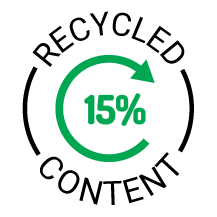
Any Polybags product displaying this icon is made - either fully or in part - from recycled material
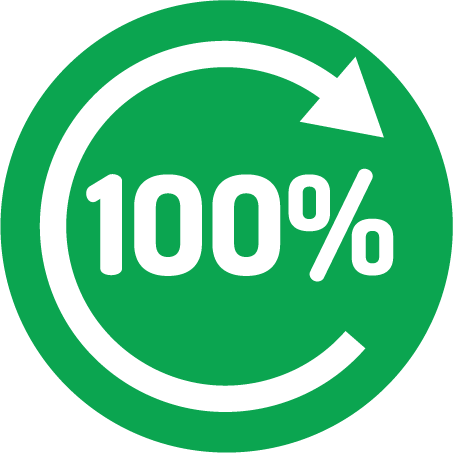
Polybags already sells a number of products made from 100% recycled plastic
Where can I buy recycled bags?
Polybags is your number one packaging retailer for recycled packaging, with a marketing leading range of bags made entirely from recycled content.
As you shop online at Polybags, keep an eye out for the circular recycled-content logo (above), which specifies the amount of recycled content the product in question contains.
What recycled packaging options are currently available?
For many years, Polybags has stocked a wide range of products containing a minimum of 30% recycled content and a large selection made entirely from recycled plastic - including mailing bags, waste sacks, packing bags, carrier bags and lots of essential plastic material for the building site (see below). All of these products are PPT Exempt.
We have also introduced over 100 new products with 30% recycled content or more, across more than a dozen product ranges - including packing bags, mailing bags, grip seal bags, layflat tubing, pallet covers and carrier bags - and we will continue to develop new recycled-content product lines wherever it is feasible to do so.
Is the product I want available with 30% recycled content?
The Polybags sales team can help you find the product(s) that best meet your individual requirements, send out samples of recycled-content products and answer any of your queries on the Plastic Packaging Tax.
Are compostable products exempt from the Plastic Packaging Tax?
No. Compostable packaging, which completely breaks down in industrial composting conditions, is currently subject to the same PPT as regular plastic packaging, despite the fact that this seems at odds with the environmental aims of the PPT.
The government has said it will be keeping this aspect of the tax under review.
Are biodegradable products exempt from the Plastic Packaging Tax?
Not currently. Packaging that is designed to biodegrade after use is subject to the same PPT as traditional plastic packaging, if it contains less than 30% recycled content.
The government has said that will review this aspect of the policy, but it does appear at odds with the 'green' nature of the PPT.
However, Polybags now stocks a range of biodegradable products - including biodegradable packing bags, biodegradable mailing bags and biodegradable carrier bags that contain at least 30% recycled content, and so are PPT Exempt.

Are products made from multiple materials exempt from the Plastic Packaging Tax?
Packaging products made from two or more materials - e.g. paper and plastic - are subject to the PPT if they are predominantly plastic by weight. We clearly display which products are subject to PPT, or PPT Exempt, so please check the product in question.
Please note: The above advice is subject to change, as detailed government advice on the implementation of the Plastic Packaging Tax is finalised and published.
The Plastic Packaging Tax - your questions answered
If you have a question about the Plastic Packaging Tax, please get in touch and a member of the Polybags team will be able to assist.
We'll also post all relevant and helpful questions and answers on this Q&A page.
Where to next?
FREE DELIVERY

375mm wide x 450mm high x 30 micron thickness, 75mm bottom gusset
From £25.53 per 500
Bio and 100%-recycled mailing bags in low quantity handypacks.


